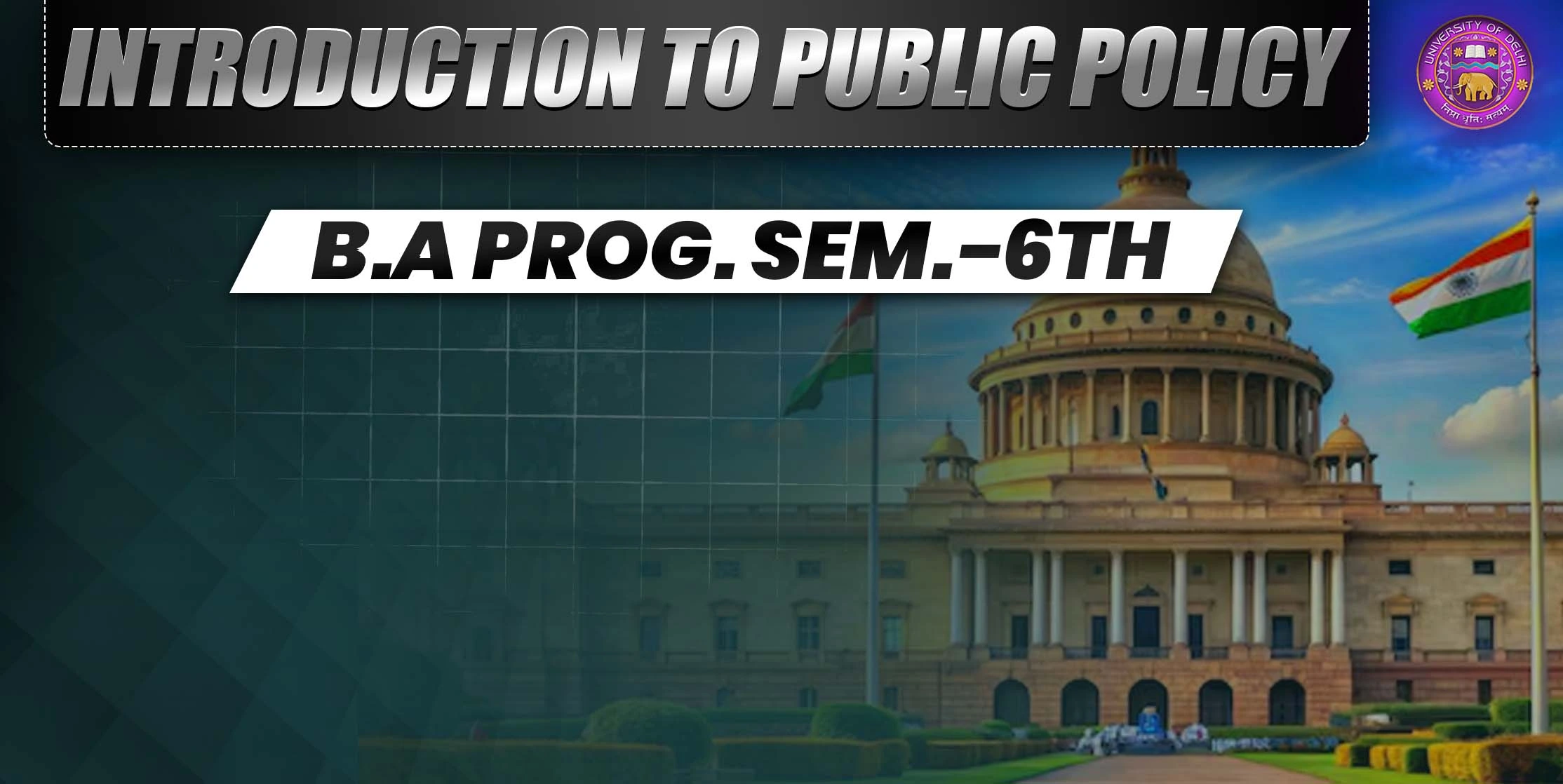
Get in Touch
We will get back to you within 24 hours.
Welcome to MVS Blog

Answer – Introduction
Public Policy is a set of plans and guidelines created by the government to improve society and solve public problems. It is based on various aspects such as Economic, Social, Political, & Technological factors. The Concept of Public Policy is related to working in the interest of the people and ensuring the overall development of the country. Its formulation is influenced by several factors like public opinion, economic conditions, politics, and technological changes.
Meaning & Definition of Public Policy:-
'Public Policy' is made up of two words—'Public' meaning the people, and 'Policy' meaning guidelines or a plan. Its literal meaning is a policy made in the interest of the public. It is a process decided by the government which focuses on the welfare of the society and solution of problems.
Important Definitions :-
Role of Determinants in Public Policy

1. Key Factors:
Public opinion, interest groups, ideologies of political parties, economic conditions, constitutional framework and international influence together play a decisive role in determining public policy. Public opinion and groups give direction to the government, parties decide ideology, economic conditions create the need for policy, while the constitution and international agreements make the policy correct and global.
2. Economic Determinants: These play a crucial role in shaping public policy. important economic determinants include the overall state of the economy, government spending and taxation decisions, changes in interest rates, trade policies, and investment-promoting measures. For example, India’s economic reforms, the Goods and Services Tax (GST), and the “Make in India” initiative are linked to such economic factors.
3. Social Determinants:
Public policies must address the needs of society. Factors such as population, culture, education, and social movements significantly influence policymaking. For instance, programs like “Skill India” and “Sarva Shiksha Abhiyan” are designed to meet social needs. Social movements exert pressure on the government, often leading to policy reforms.
4. Political Determinants:
Political structure, stability, leadership, and electoral politics strongly influence policymaking. Election strategies, global pressures, and public participation in the policymaking process shape the direction of policies. Initiatives like “Swachh Bharat Abhiyan” and the Paris Agreement reflect both political perspectives and international obligations.
5.Technological & Institutional Determinants :
Technological advancements and institutional mechanisms significantly impact public policy. Policies like “Digital India” and health reforms are driven by technological change. Institutions such as the judiciary, bureaucracy, and regulatory bodies play a key role in the effective implementation of policies. Reforms like GST and RTI have increased transparency and improved policy effectiveness.
Analysis of the Role of Determiners
In the formulation of public policy, economic, social, political, and technological factors together shape the policy. For example, the economic condition and government expenditure set the direction of policy, while societal needs and political perspectives influence policies. Technological and institutional reforms increase transparency, making policies more effective. All these factors combined make the policymaking process stronger and more accountable.
Importance of Public Policy
1. Governance Framework:
Public policy provides a right direction for the government to function effectively. It helps in making and implementing decisions efficiently, thereby simplifying the process of governance.
2. Resource Distribution:
Public policy ensures that limited resources are spent in the right places so that people’s needs can be met.
3. Social Equality & Justice:
Public policy plays an important role in promoting equal rights for all individuals in society. It ensures equal opportunities and helps eliminate discrimination.
4. Economic Development:
Public policy supports economic growth by improving the financial condition of the country, creating employment opportunities, and facilitating trade and investment.
Conclusion:
Public policy is essential for societal development and solving public issues. It guides government decision-making to improve national conditions. Various factors like economic, social, and technological changes influence public policy and contribute to making it more effective.
0 Response